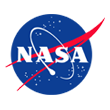
Astrobiology
Are we alone in the universe? Much of SEEC’s work is focused on answering this question — one of the most compelling mysteries of all time. While many NASA missions are seeking evidence of life beyond Earth in our solar system, SEEC scientists, using increasingly sophisticated technologies, will soon be able to do the same in exoplanetary systems. The science and engineering efforts needed to address questions of life, such as ‘What does life need to survive?’ ‘Are those resources available on a planet?’ and ‘How might we be able to detect evidence for past or present life?’ are organized into the field of astrobiology. This field encompasses such disciplines as chemistry, biology, physics, geology and others. It will take highly interdisciplinary teams of scientists, like SEEC, to predict what signatures life might imprint on an exoplanet and whether we can detect them with certainty. Perhaps the first strong signs of life on another world will be observed in our lifetime – stay tuned!
